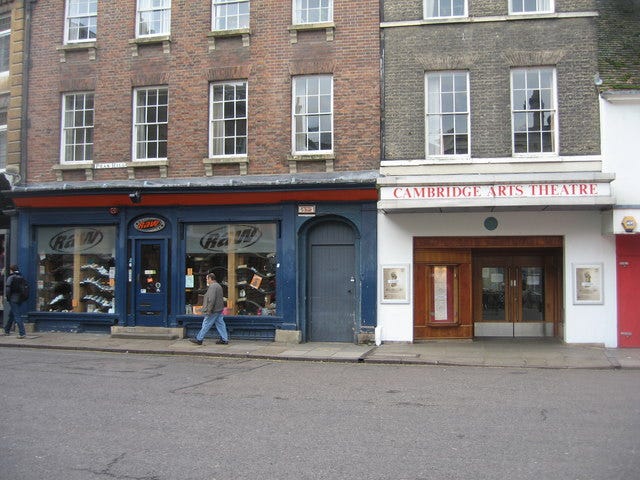Visiting Cambridge recently, I repeatedly walked past the Arts Theatre Box Office on my way to the King’s College Archives.
(I’ve used this old photo - (C) Geogfanatic - because it still has the original entrance.
For me, this is the epitome of Keynes’ thinking about the economy - in his pursuit of the good, the true and the beautiful.
In the depths of the Great Depression, Keynes decided to build a new theatre on land which King’s College owned. He provided much of the funding required, oversaw building and even programming, and managed to run it at a profit, so that his loans were repaid shortly before his death. It also allowed his wife Lydia, after retirement from ballet, to extend her career as an actor and director.
This was not about business - but it was about organisation and networks and entrepreneurship, bringing energy and imagination to solve an identified problem. And of course, there was no question of profit maximisation.
But it did have to be financially sustainable.
At exactly the same time, Keynes setting out what governments needed to do end the Great Depression. The obvious answer was ‘spend more money’. But he saw that as being a need only for a short time. With sufficient recovery, the private sector would take over.
As he did with his theatre.


